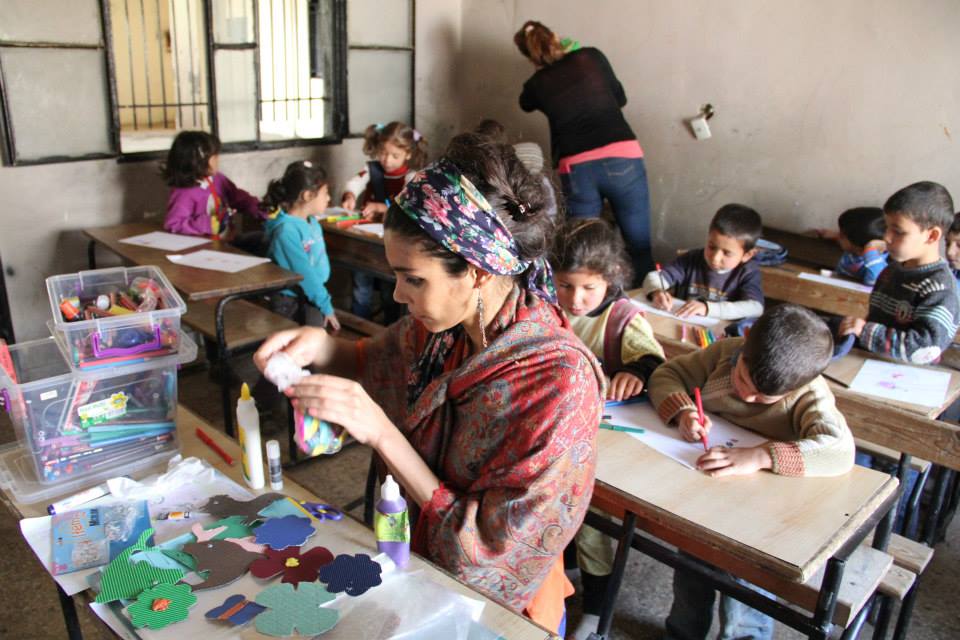As the wave of violence that swept through Syria reaps the lives of thousands of children, it also steals away their future, threatening to deny an entire generation of education. This prophecy has mobilized numerous activists and professionals in the hope of preventing such calamity. Sonbola, a project that adopts an innovative approach to education is one of such initiatives.
Based in the region of Bekaa, Lebanon, Sonbola is a lifelong learning initiative that integrates non-formal education and interactive learning methodology, providing quality-based learning to Syrian refugee children.
The project targets the children who were outside the scope of education and of psychological and basic service needs for the past two to three years. More importantly however, Sonbola targets Syrian resources, teachers and young professionals, who need the opportunity to improve their teaching and professional skills; it engages them in the process of providing sustainable education to refugee children.
As a non-formal education project, Sonbola believes that “Emergency Education”, which is currently restricted to literacy and numeracy, is simply not sufficient. “We cannot build our country’s future when the education of its future generation is limited to literacy and numeracy,” highlights Massa Mufti-Hamwi, founder and actor director of Sonbola, “Hence, we aim to complement basic education with non-formal quality education, through interactive and active learning methodology.”
The project launched its programs during a pilot phase that lasted two months April-June, 2014, followed by an intensive summer camp during the month of July 2014. Nevertheless, it is unconventionality that makes Sonbola stand out among all the other educational projects. The programs covered four subjects: music, art, theater and a mobile library. Focusing on these four unorthodox subjects has helped Sonbola demonstrate that art and human science subjects are not mere entertainment or psycho-social support activities as it is simplistically perceived by many.
Later on, the team was able to widen its scope to include science and English. “This way,” explains Hamwi, “we ensure that Syrian children learn about all subjects areas through contextual and interactive programs and become active learners for the sake of their future and the future of our country.”
Collaboration and partnership with other NGOs working in the same field is one of the cornerstones of the project. All of the activities initiated by Sonbola took place at partner schools or centers, including: Jusoor NGO, Nisaa el Aan community center, Majdal Anjar (Syrian School), SAWA, and others. Hamwi infers the importance of cooperation between Syrian projects at this phase: “Sonbola is part of the growing Syrian civil society, which can only grow and become a force through cooperation, partnership and shared knowledge.”





